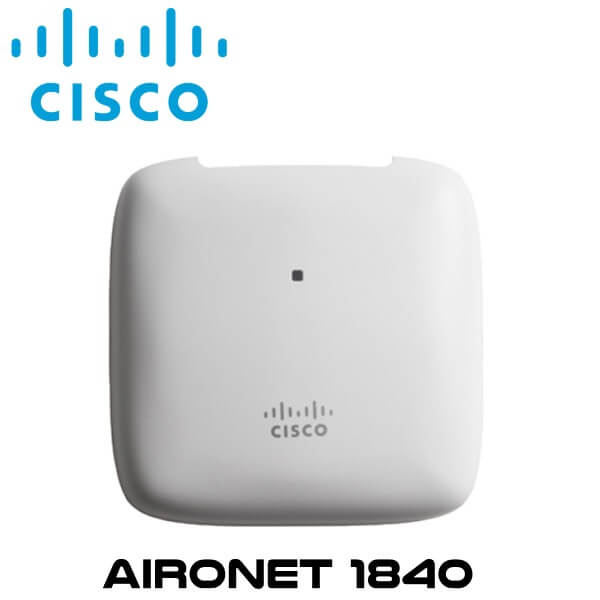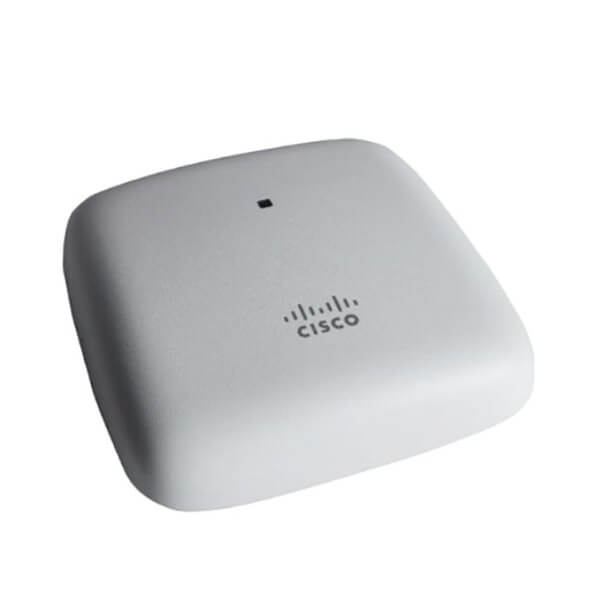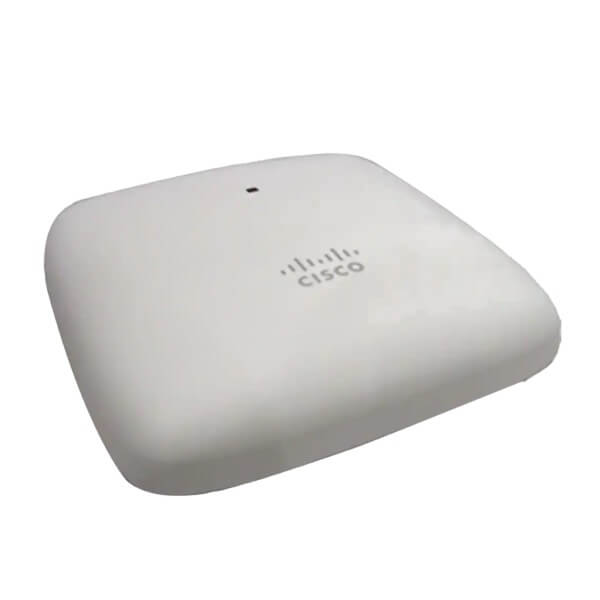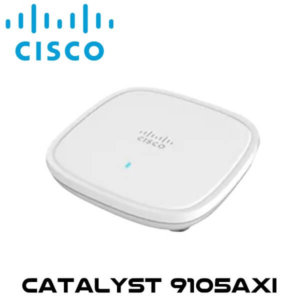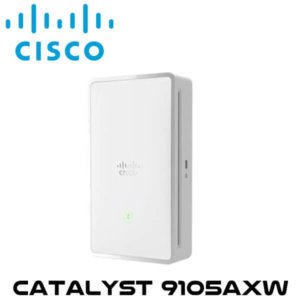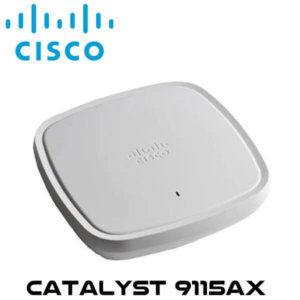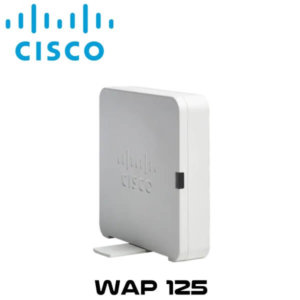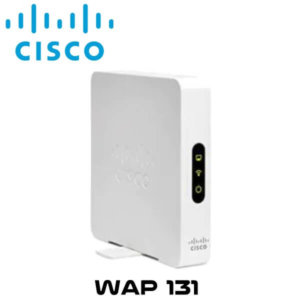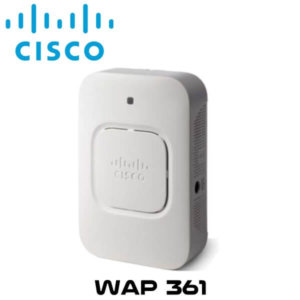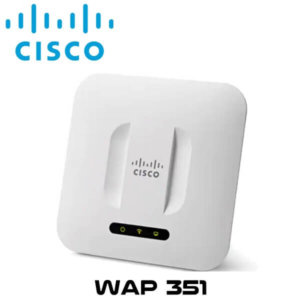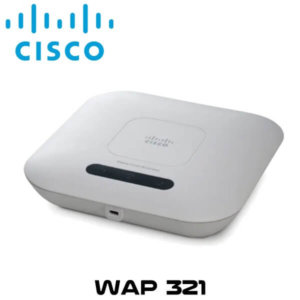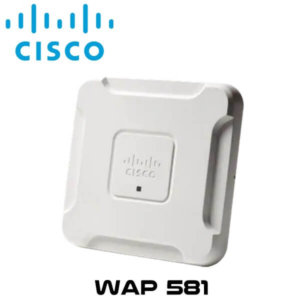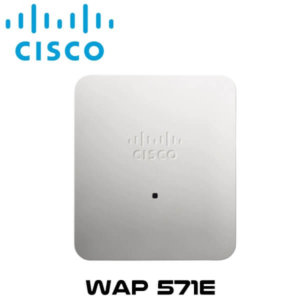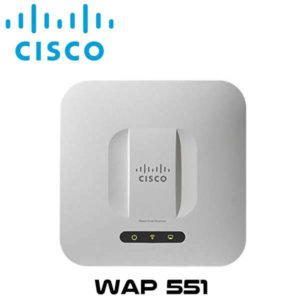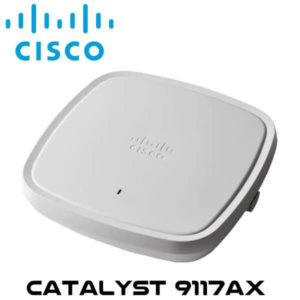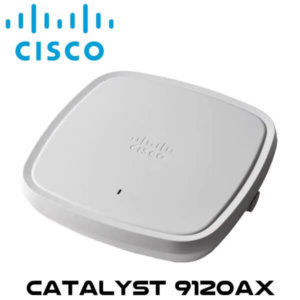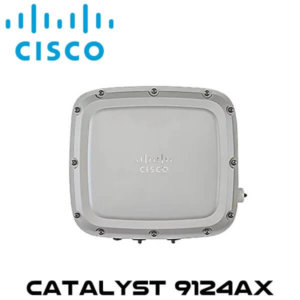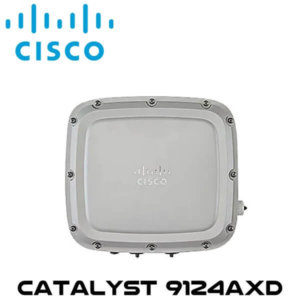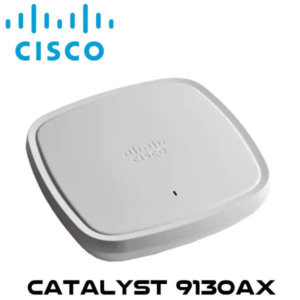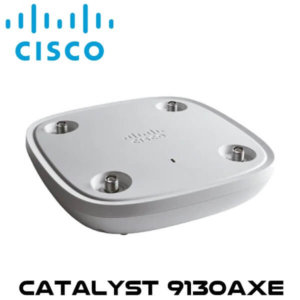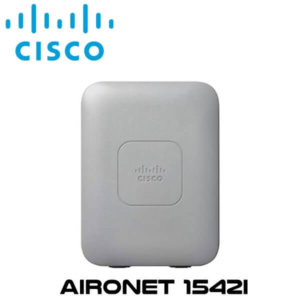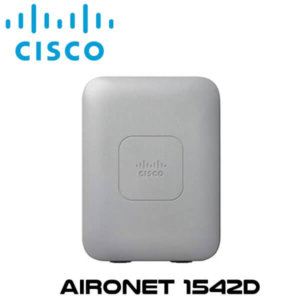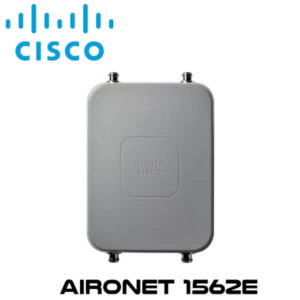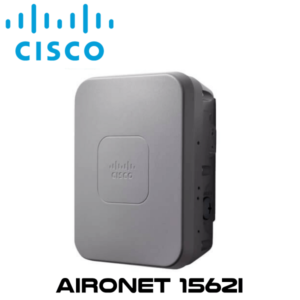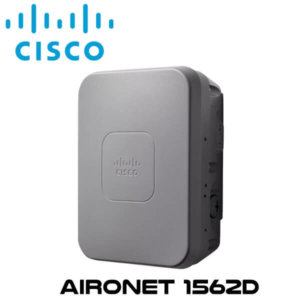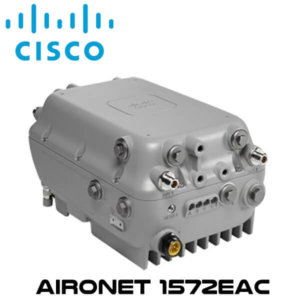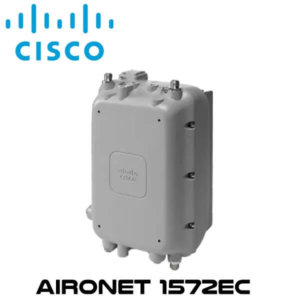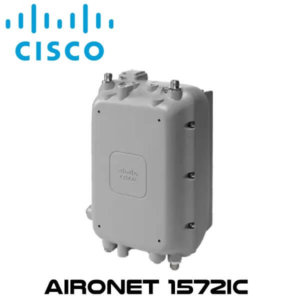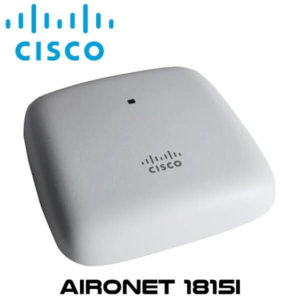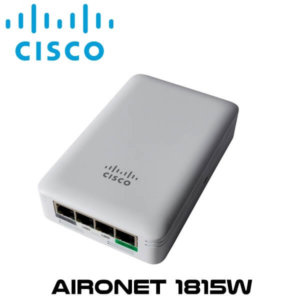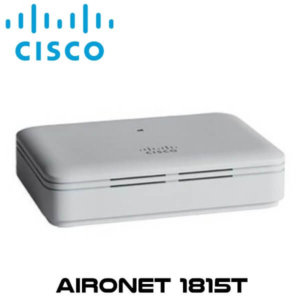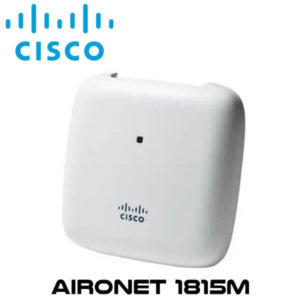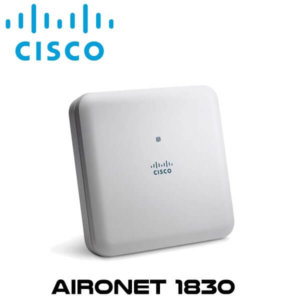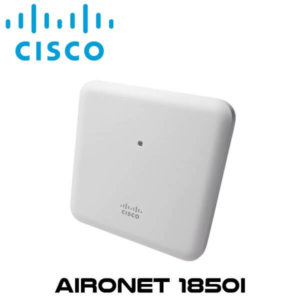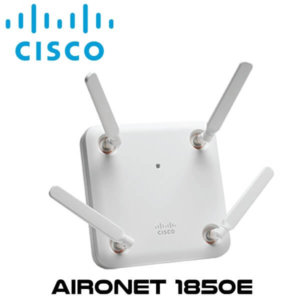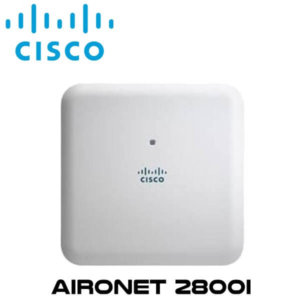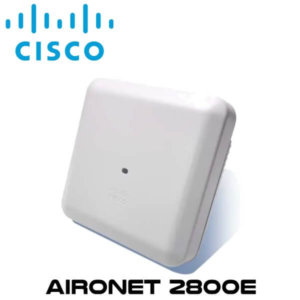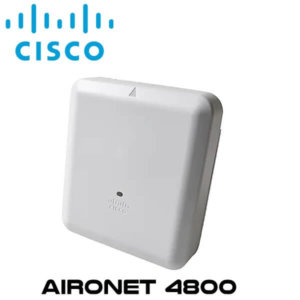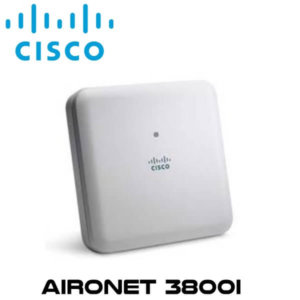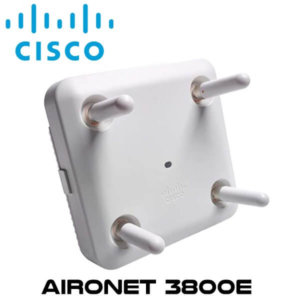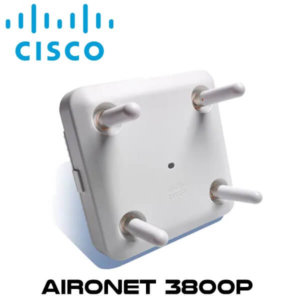Description
Cisco Aironet1840 Access Point Kenya
The Cisco Aironet1840 Kenya delivers an ideal blend of predictable performance in a compact form factor. Packed with 802.11ac Wave 2 features and Bluetooth Low Energy (BLE) for location-based services, this platform is ideal for small to mid-size enterprise deployments. Ideal for small and medium-sized networks, the Cisco Aironet1840 Kenya delivers industry-leading performance for enterprise and service provider markets via enterprise-class 4×4 MU-MIMO, four-spatial-stream access points that support the Institute of Electrical and Electronic Engineers (IEEE) 802.11ac Wave 2 standard. Integrated BLE radio enables location-based use cases such as wayfinding and asset tracking. This Cisco WiFi Kenya Access Point extends support to a new generation of Wi-Fi clients, such as smartphones, tablets, and high-performance laptops that have integrated 802.11ac Wave 1 or Wave 2 support.
Features
802.11ac Wave 1 and 2 capabilities
Featuring IEEE 802.11ac standard Cisco Aironet1840 Kenya, delivers a better experience in typical environments, and a more predictable performance for advanced applications such as 4K or 8K video, high-density high-definition collaboration apps, all-wireless offices and Internet-of-Things (IoT).
Multiuser Multiple-Input Multiple-Output (MU-MIMO) technology
Cisco Aironet1840 Kenya supports four spatial streams, MU-MIMO enables access points to split spatial streams between client devices, to maximize throughput.
Intelligent Capture
This Cisco WiFi Kenya boasts of intelligent capture probes the network and provides DNA Center with deep analysis. The software can track over 240 anomalies and instantaneously review all packets on demand, emulating the onsite network administrator. Intelligent Capture allows for more informed decisions on your wireless networks.
Cisco Mobility Express
With Mobility Express Cisco Aironet1840 Kenya, is designed for networks of all sizes, including small and medium-sized businesses and distributed enterprises. It provides industry-leading wireless LAN technology without the need for a physical controller or additional licenses.
Bluetooth 4.2
Cisco Aironet1840 Kenya is integrated BLE 4.2 radio to enable IoT use cases such as location tracking.
Cisco DNA support
Pairing the Aironet 1840 Access Points with the Cisco Digital Network Architecture (DNA) allows for a total network transformation. Cisco DNA allows you to truly understand your network with real-time analytics, quickly detect and contain security threats, and easily provide network-wide consistency through automation and virtualization. By decoupling network functions from the hardware, you can build and manage your entire wired and wireless network from a single user interface. Working together, the Cisco Aironet1840 Kenya and Cisco DNA offer such features as: Cisco DNA Spaces, Apple FastLane, Cisco Identity Services Engine, Cisco DNA Analytics and Assurance and much more.
Specifications
| Software |
|
|||||||||
| Supported wireless LAN controllers |
|
|||||||||
| 802.11n version 2.0 (and related) capabilities |
|
|||||||||
| 802.11ac |
|
|||||||||
| Integrated antenna |
|
|||||||||
| Interfaces |
|
|||||||||
| Indicators | Status LED indicates boot loader status, association status, operating status, boot loader warnings, boot loader errors | |||||||||
| Dimensions (W x L x H) | Access point (without mounting brackets): AIR-AP1840I: 7 x 7 x 1.5 in | |||||||||
| Weight | 0.94 lb (0.43 kg) | |||||||||
| Input power requirements |
Note: When 802.3af PoE is the source of power, then USB port will be off |
|||||||||
| Power draw | Cisco AIR-AP1840I
|
|||||||||
| Environmental | Cisco AIR-AP1840I
Note: when ambient operating temperature exceeds 40°C, then the radio transmit duty cycle may be limited to not greater than 50%. |
|||||||||
| System memory | 1GB MB DRAM
256 MB flash |
|||||||||
| Warranty | Limited lifetime hardware warranty | |||||||||
| Available transmit power settings | 2.4 GHz
|
5 GHz
|
||||||||
| Frequency band and 20-MHz operating channels | A (A regulatory domain):
B (B regulatory domain):
C (C regulatory domain):
D (D regulatory domain):
E (E regulatory domain):
F (F regulatory domain):
G (G regulatory domain):
H (H regulatory domain):
|
I (I regulatory domain):
K (K regulatory domain):
N (N regulatory domain):
Q (Q regulatory domain):
R (R regulatory domain):
S (S regulatory domain):
T (T regulatory domain):
Z (Z regulatory domain):
|
||||||||
| Maximum number of nonoverlapping channels | 2.4 GHz
|
5 GHz
|
||||||||
| Note: This varies by regulatory domain. Refer to the product documentation for specific details for each regulatory domain. | ||||||||||
| Compliance standards |
|
|||||||||
| Data rates supported | 802.11b: 1, 2, 5.5, and 11 Mbps | |||||||||
| 802.11a/g: 6, 9, 12, 18, 24, 36, 48, and 54 Mbps | ||||||||||
| 802.11n data rates on 2.4 GHz (only 20 MHz and MCS 0 to MCS 15) and 5GHz | ||||||||||
| MCS Index | GI = 800 ns | GI = 800 ns | GI = 400 ns | GI = 400 ns | ||||||
| 20-MHz Rate (Mbps) | 40-MHz Rate (Mbps) | 20-MHz Rate (Mbps) | 40-MHz Rate (Mbps) | |||||||
| 0 | 6.5 | 13.5 | 7.2 | 15 | ||||||
| 1 | 13 | 27 | 14.4 | 30 | ||||||
| 2 | 19.5 | 40.5 | 21.7 | 45 | ||||||
| 3 | 26 | 54 | 28.9 | 60 | ||||||
| 4 | 39 | 81 | 43.3 | 90 | ||||||
| 5 | 52 | 108 | 57.8 | 120 | ||||||
| 6 | 58.5 | 121.5 | 65 | 135 | ||||||
| 7 | 65 | 135 | 72.2 | 150 | ||||||
| 8 | 13 | 27 | 14.4 | 30 | ||||||
| 9 | 26 | 54 | 28.9 | 60 | ||||||
| 10 | 39 | 81 | 43.3 | 90 | ||||||
| 11 | 52 | 108 | 57.8 | 120 | ||||||
| 12 | 78 | 162 | 86.7 | 180 | ||||||
| 13 | 104 | 216 | 115.6 | 240 | ||||||
| 14 | 117 | 243 | 130 | 270 | ||||||
| 15 | 130 | 270 | 144.4 | 300 | ||||||
| 16 | 19.5 | 40.5 | 21.7 | 45 | ||||||
| 17 | 39 | 81 | 43.4 | 90 | ||||||
| 18 | 58.5 | 121.5 | 65 | 135 | ||||||
| 19 | 78 | 162 | 86.7 | 180 | ||||||
| 20 | 117 | 243 | 130 | 270 | ||||||
| 21 | 156 | 324 | 173.3 | 360 | ||||||
| 22 | 175.5 | 364.5 | 195 | 405 | ||||||
| 23 | 195 | 405 | 216.7 | 450 | ||||||
| 24 | 26 | 54 | 28.9 | 60 | ||||||
| 25 | 52 | 108 | 57.8 | 120 | ||||||
| 26 | 78 | 162 | 86.7 | 180 | ||||||
| 27 | 104 | 216 | 115.6 | 240 | ||||||
| 28 | 156 | 324 | 173.3 | 360 | ||||||
| 29 | 208 | 432 | 173.3 | 480 | ||||||
| 30 | 234 | 486 | 260 | 540 | ||||||
| 31 | 260 | 540 | 288.9 | 600 | ||||||
| 802.11ac data rates (5 GHz): | ||||||||||
| MCS Index |
Spatial Streams | GI = 800 ns | GI = 400 ns | |||||||
| 20-MHz Rate (Mbps) | 40-MHz Rate (Mbps) | 80-MHz Rate (Mbps) | 20-MHz Rate (Mbps) | 40-MHz Rate (Mbps) | 80-MHz Rate (Mbps) | |||||
| 0 | 1 | 6.5 | 13.5 | 29.3 | 7.2 | 15 | 32.5 | |||
| 1 | 1 | 13 | 27 | 58.5 | 14.4 | 30 | 65 | |||
| 2 | 1 | 19.5 | 40.5 | 87.8 | 21.7 | 45 | 97.5 | |||
| 3 | 1 | 26 | 54 | 117 | 28.9 | 60 | 130 | |||
| 4 | 1 | 39 | 81 | 175.5 | 43.3 | 90 | 195 | |||
| 5 | 1 | 52 | 108 | 234 | 57.8 | 120 | 260 | |||
| 6 | 1 | 58.5 | 121.5 | 263.3 | 65 | 135 | 292.5 | |||
| 7 | 1 | 65 | 135 | 292.5 | 72.2 | 150 | 325 | |||
| 8 | 1 | 78 | 162 | 351 | 86.7 | 180 | 390 | |||
| 9 | 1 | – | 180 | 390 | – | 200 | 433.3 | |||
| MCS Index |
Spatial Streams | GI = 800 ns | GI = 400 ns | |||||||
| 20-MHz Rate (Mbps) | 40-MHz Rate (Mbps) | 80-MHz Rate (Mbps) | 20-MHz Rate (Mbps) | 40-MHz Rate (Mbps) | 80-MHz Rate (Mbps) | |||||
| 0 | 2 | 13 | 27 | 58.5 | 14.4 | 30 | 65 | |||
| 1 | 2 | 26 | 54 | 117 | 28.9 | 60 | 130 | |||
| 2 | 2 | 39 | 81 | 175.5 | 43.3 | 90 | 195 | |||
| 3 | 2 | 52 | 108 | 234 | 57.8 | 120 | 260 | |||
| 4 | 2 | 78 | 162 | 351 | 86.7 | 180 | 390 | |||
| 5 | 2 | 104 | 216 | 468 | 115.6 | 240 | 520 | |||
| 6 | 2 | 117 | 243 | 526.5 | 130 | 270 | 585 | |||
| 7 | 2 | 130 | 270 | 585 | 144.4 | 300 | 650 | |||
| 8 | 2 | 156 | 324 | 702 | 173.3 | 360 | 780 | |||
| 9 | 2 | – | 360 | 780 | – | 400 | 866.7 | |||
| MCS Index |
Spatial Streams | GI = 800 ns | GI = 400 ns | |||||||
| 20-MHz Rate (Mbps) | 40-MHz Rate (Mbps) | 80-MHz Rate (Mbps) | 20-MHz Rate (Mbps) | 40-MHz Rate (Mbps) | 80-MHz Rate (Mbps) | |||||
| 0 | 3 | 19.5 | 40.5 | 87.8 | 21.7 | 45 | 97.5 | |||
| 1 | 3 | 39 | 81 | 175.5 | 43.3 | 90 | 195 | |||
| 2 | 3 | 58.5 | 121.5 | 263.3 | 65 | 135 | 292.5 | |||
| 3 | 3 | 78 | 162 | 351 | 86.7 | 180 | 390 | |||
| 4 | 3 | 117 | 243 | 526.5 | 130 | 270 | 585 | |||
| 5 | 3 | 156 | 324 | 702 | 173.3 | 360 | 780 | |||
| 6 | 3 | 175.5 | 364.5 | – | 195 | 405 | – | |||
| 7 | 3 | 195 | 405 | 877.5 | 216.7 | 450 | 975 | |||
| 8 | 3 | 234 | 486 | 1053 | 260 | 540 | 1170 | |||
| 9 | 3 | 260 | 540 | 1170 | 288.9 | 600 | 1300 | |||
| MCS Index |
Spatial Streams | GI = 800 ns | GI = 400 ns | |||||||
| 20-MHz Rate (Mbps) | 40-MHz Rate (Mbps) | 80-MHz Rate (Mbps) | 20-MHz Rate (Mbps) | 40-MHz Rate (Mbps) | 80-MHz Rate (Mbps) | |||||
| 0 | 4 | 26 | 54 | 117 | 28.8 | 60 | 130 | |||
| 1 | 4 | 52 | 108 | 234 | 57.8 | 120 | 260 | |||
| 2 | 4 | 78 | 162 | 351 | 86.7 | 180 | 390 | |||
| 3 | 4 | 104 | 216 | 468 | 115.6 | 240 | 520 | |||
| 4 | 4 | 156 | 324 | 702 | 173.3 | 360 | 780 | |||
| 5 | 4 | 208 | 432 | 936 | 231.1 | 480 | 1040 | |||
| 6 | 4 | 234 | 486 | 1053 | 260 | 540 | 1170 | |||
| 7 | 4 | 260 | 540 | 1170 | 288.9 | 600 | 1300 | |||
| 8 | 4 | 312 | 648 | 1404 | 346.7 | 720 | 1560 | |||
| 9 | 4 | – | 720 | 1560 | – | 800 | 1733.3 | |||
Transmit Power and Receive Sensitivity
| Transmit Power and Receive Sensitivity | |||||
| 1 Mbps | 5-GHz Radio | 2.4-GHz Radio | |||
| Spatial Streams | Total Tx Power (dBm) | Rx Sensitivity (dBm) | Total Tx Power (dBm) | Rx Sensitivity (dBm) | |
| 802.11/11b | |||||
| 1 Mbps | 1 | – | – | 20 | -99 |
| 11 Mbps | 1 | – | – | 20 | -91 |
| 802.11a/g | |||||
| 6 Mbps | 1 | 23 | -94 | 20 | -93 |
| 24 Mbps | 1 | 23 | -86 | 20 | -85 |
| 54 Mbps | 1 | 23 | -77 | 20 | -76 |
| 802.11n HT20 | |||||
| MCS0 | 1 | 23 | -94 | 20 | -93 |
| MCS4 | 1 | 23 | -81 | 20 | -81 |
| MCS7 | 1 | 23 | -74 | 20 | -73 |
| MCS8 | 2 | 23 | -93 | 20 | -93 |
| MCS12 | 2 | 23 | -81 | 20 | -81 |
| MCS15 | 2 | 23 | -75 | 20 | -75 |
| MCS16 | 3 | 23 | -93 | – | – |
| MCS20 | 3 | 23 | -81 | – | – |
| MCS23 | 3 | 23 | -74 | – | – |
| MCS24 | 4 | 23 | -92 | – | – |
| MCS28 | 4 | 23 | -82 | – | – |
| MCS31 | 4 | 23 | -75 | – | – |
| 802.11n HT40 | |||||
| MCS0 | 1 | 23 | -91 | – | – |
| MCS4 | 1 | 23 | -79 | – | – |
| MCS7 | 1 | 23 | -72 | – | – |
| MCS8 | 2 | 23 | -90 | – | – |
| MCS12 | 2 | 23 | -78 | – | – |
| MCS15 | 2 | 23 | -71 | – | – |
| MCS16 | 3 | 23 | -89 | – | – |
| MCS20 | 3 | 23 | -78 | – | – |
| MCS23 | 3 | 23 | -70 | – | – |
| MCS24 | 4 | 23 | -90 | – | – |
| MCS28 | 4 | 23 | -79 | – | – |
| MCS31 | 4 | 23 | -72 | – | – |
| 802.11ac VHT20 | |||||
| MCS0 | 1 | 23 | -94 | – | – |
| MCS4 | 1 | 23 | -81 | – | – |
| MCS7 | 1 | 23 | -74 | – | – |
| MCS8 | 1 | 23 | -70 | – | – |
| MCS9 | 1 | 23 | NA | – | – |
| MCS0 | 2 | 23 | -92 | – | – |
| MCS4 | 2 | 23 | -81 | – | – |
| MCS7 | 2 | 23 | -73 | – | – |
| MCS8 | 2 | 23 | -68 | – | – |
| MCS9 | 2 | 23 | NA | – | – |
| MCS0 | 3 | 23 | -92 | – | – |
| MCS4 | 3 | 23 | -81 | – | – |
| MCS7 | 3 | 23 | -73 | – | – |
| MCS8 | 3 | 23 | -68 | – | – |
| MCS9 | 3 | 23 | -67 | – | – |
| MCS0 | 4 | 23 | -91 | – | – |
| MCS4 | 4 | 23 | -80 | – | – |
| MCS7 | 4 | 23 | -73 | – | – |
| MCS8 | 4 | 23 | -68 | – | – |
| MCS9 | 4 | 23 | NA | – | – |
| 802.11ac VHT40 | |||||
| MCS0 | 1 | 23 | -91 | – | – |
| MCS4 | 1 | 23 | -79 | – | – |
| MCS7 | 1 | 23 | -72 | – | – |
| MCS8 | 1 | 23 | -67 | – | – |
| MCS9 | 1 | 23 | -66 | – | – |
| MCS0 | 2 | 23 | -90 | – | – |
| MCS4 | 2 | 23 | -78 | – | – |
| MCS7 | 2 | 23 | -71 | – | – |
| MCS8 | 2 | 23 | -66 | – | – |
| MCS9 | 2 | 23 | -65 | – | – |
| MCS0 | 3 | 23 | -89 | – | – |
| MCS4 | 3 | 23 | -78 | – | – |
| MCS7 | 3 | 23 | -71 | – | – |
| MCS8 | 3 | 23 | -64 | – | – |
| MCS9 | 3 | 23 | -62 | – | – |
| MCS0 | 4 | 23 | -88 | – | – |
| MCS4 | 4 | 23 | -78 | – | – |
| MCS7 | 4 | 23 | -70 | – | – |
| MCS8 | 4 | 23 | -65 | – | – |
| MCS9 | 4 | 23 | -64 | – | – |
| 802.11ac VHT80 | |||||
| MCS0 | 1 | 23 | -88 | – | – |
| MCS4 | 1 | 23 | -76 | – | – |
| MCS7 | 1 | 23 | -68 | – | – |
| MCS8 | 1 | 23 | -64 | – | – |
| MCS9 | 1 | 23 | -62 | – | – |
| MCS0 | 2 | 23 | -87 | – | – |
| MCS4 | 2 | 23 | -75 | – | – |
| MCS7 | 2 | 23 | -68 | – | – |
| MCS8 | 2 | 23 | -63 | – | – |
| MCS9 | 2 | 23 | -62 | – | – |
| MCS0 | 3 | 23 | -86 | – | – |
| MCS4 | 3 | 23 | -75 | – | – |
| MCS7 | 3 | 23 | -67 | – | – |
| MCS8 | 3 | 23 | -62 | – | – |
| MCS9 | 3 | 23 | -61 | – | – |
| MCS0 | 4 | 23 | -85 | – | – |
| MCS4 | 4 | 23 | -74 | – | – |
| MCS7 | 4 | 23 | -67 | – | – |
| MCS8 | 4 | 23 | -61 | – | – |
| MCS9 | 4 | 23 | -59 | – | – |


